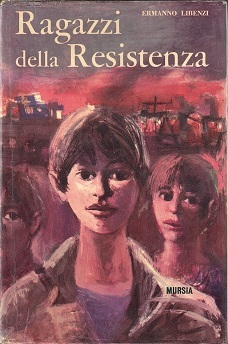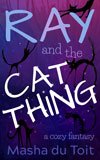One of the amazing things about having a blog is that every now and then, the people you write about, write back! Imagine my delight in getting an email from Ermanno Libenzi, the author of quite a few of the books that were my absolute, all-time favorites when I was a little girl. You might have seen my post on his book “Ernest in the Wild West” which you can see here and which drew a lovely conversation in the comments, from people all over the world who love those books just as much as I do.
Ermanno tells me there is a chance that these books might be republished. How amazing would that be! So I’m honored to host a guest post here by Ermanno Libenzi, in which he reminds us of who he is, and why he wrote those books in the first place. If you are interested to see more of Ermanno’s books, here is a link to some of them.
ERMANNO LIBENZI, CHILDREN’S BOOKS WRITER AND JOURNALIST
Autobiographical notes.
I was born in Milan, Italy, and grew up amid printed paper. My father was a journalist at the “Corriere della Sera”, the leading Italian newspaper, and his home library room was full not only of books, but also of magazines and newspapers of various nationalities. I was terribly curious to know the meaning of all those big written words I saw in his magic room. I’m sure that it was this curiosity which pressed me to become an early reader.
I began, of course, with the first elementary picture books, then I passed to fairy tales, soon I discovered the joys of comic strips, and through them I reached the vast world of adventure books: pirates, cow-boys, explorers were my first unforgettable heroes. Years later, I made those stories live again in three hilarious children’s books I wrote: “Robin and the Pirates”, the story of a smart little boy who finds himself on board of a pirate vessel, and the two adventures of Ernest, a funny gentleman, photographer and explorer. In the first book he wanders through the astonishing mysteries of Africa, in the second one, he crosses the savage world of the Wild West. I entrusted the genius of illustration Adelchi Galloni with the task of realizing at his best the three books’ drawings. I can say that he really managed to bring the imagery and language of comics into the sphere of art.

One day, exploring my father’s bookcases, by chance I opened the Treasure Island by Robert Louis Stevenson. That was for me the entrance door to the fascinating world of the great European and American novels.
In my opinion, nothing can help a child, and later a boy, to acquire a complete cultural and sentimental education more than an early reading of these masterpieces, when our soul is clean as a white sheet of paper, and our personality is quickly developing. Reading great books is really the best food for our spirit. Moreover, the literary masterpieces can teach us how to give full expression to our thoughts and sentiments through the language, both written and spoken.
Thanks to all the printed paper of my childhood, I started writing and publishing books when I was still very young. Everything is new, when you are in your twenties. No conventions bind your fantasy, no obligations, no commonplaces block your creativity, and sometimes the results of this state of grace are surprising.
I remember that when I was 25 years old, a little, sorrowful idea had been turning over in my mind for a long time. I thought that it was so pleasant to go around riding a bicycle or a motorbike. So pleasant but unfortunately also so dangerous. Every year a dreadful number of young people are victims all over the world in road accidents. I thought that writing a book on that argument could certainly be an useful project. The real problem was the way I could transform a boring Road Safety manual into a readable and maybe agreeable children’s book. I thought that the best thing I could do was to keep my hand very light, to be cheerful but giving affordable tips, and above all to avoid anxiety-inducing lessons, which could only frighten readers. A fearful, hesitating driver is constantly in danger, more or less like a reckless driver.
After the book was published, it happened an incredible thing. It won the “Premio Bancarellino”, the main Italian literary prize dedicated to children’s literature. Simply, I couldn’t believe it. Yet that prize was above suspicion, because its jury was, and still is, composed by hundreds of young readers coming from all the Italian regions.
My explanation of the mystery was that it was just this unconventional kind of jury which allowed my book to win the prize. I was on the same unconventional wavelength as them, while a jury made of lofty critics never could admit a manual for young cyclist into the elite of Italian children’s literature.
Nevertheless I felt a little bit guilty: my light-hearted manual had prevailed over demanding biographies and committed historical novels… I decided to redeem myself. Four years later, I managed to win the same prize again with a serious book based on true historical episodes happened in Italy during the Second World War.

In the following years I divided my professional activity among editorial work, journalism and children’s books writing.
I wrote about thirty children’s books of various subjects: tales, picture books, young adult science fiction, short stories, historical and scientific non fiction.
My Italian publishers were Mondadori, Garzanti and Vallecchi. Abroad, my books were published by Hamlyn in the United Kingdom, Platt & Munk in the United States, Nathan and Sarbacane in France, Duculot in Belgium, Südwest Verlag in Germany, Turbine Forlaget in Sweden and Danmark, Lasten Kerkus in Finland, Beijing Timebook Culture Spread in China, Holp Shuppan and Rippu Shobo in Japan, Orell Füssli Verlag In Switzerland.
First of all, I always tried to stick at the basic duty of every narrator: to entertain, to fascinate his readers – both children and adults, i.e. their parents – with amusing and/or engaging stories. At the same time, I always tried to pursue a moral aim in my work, yet carefully trying to avoid moralism. In particular, I always cultivated a strong interest in ecology, environmentalism and human rights. As a journalist, I wrote many articles in defence of animals, particularly against hunting. Last, but not least, I did my best to keep in mind that a storyteller has a fantastic opportunity. He can deliver – without appearing to do so – a lot of sound principles. Ancient Romans, two thousand years ago, called this pedagogical concept “docendo ludere”, that means “teaching and amusing”. I hope that this can be my motto.

________________________










Sep 05, 2014 @ 01:44:08
Exciting news to hear that the Robin and Ernest books might be republished! They are classics and should be read by everyone. Extremely interesting to read about Ermanno’s fascinating life- he’s a great author and a very nice chap.
Sep 06, 2014 @ 15:22:19
Agreed, Dave! I do hope it happens.
Sep 14, 2014 @ 21:44:06
Hello everyone, I’m Italian, and I’m in my forties. When I was a child, some 30 years ago, I had the lucky chance of reading one Ermanno Libenzi’s tales book, “Il pianeta dei robot”, which still today I consider one of the best books I ever had read in my life.
Not only beautiful, amazing tales and amusing entertainment… but in every tale even a deep – though clearly recognizable for everyone – message against the de-humanization of progress.
Just wanted to say: Thank You very much Ermanno!
Sep 15, 2014 @ 07:32:13
Thanks Alessandro
You make me wish that I could read Italian – it sounds like a marvelous book 🙂
Sep 15, 2014 @ 15:50:14
Thank You Masha, I found your blog very interesting!
About that particular book, I can only add that, in my opinion, it would deserve to be read in every classroom, for every 8-9 y.o. little child… Just to begin the Acknowledgment of environmental topics, for example, or the ethic matters about the costant increase of computer addiction in every human activity… 🙂
Jul 04, 2023 @ 19:43:15
Hi
I am desperate to find a copy of Ernest’s adventures in Africa in English for my sister. She had the book when she was young and we have searched for it for many years.I would love to surprise her for her birthday. If anyone can help or supply contact details that would be fab x